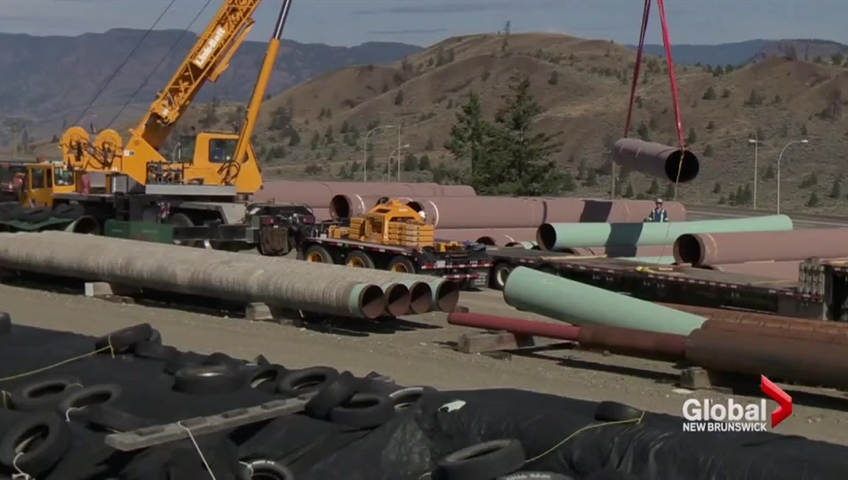The Energy East pipeline faces an uncertain future after TransCanada said it wants to temporarily suspend its application to build the $15.7-billion project.

The Calgary-based company says it has sent a letter to the National Energy Board (NEB) asking for a 30-day suspension for the proposed 4,500-kilometre pipeline, which will carry western crude to refineries in eastern Canada.
The company said it wants to study how an NEB decision last month – to consider Energy East’s contribution to upstream and downstream greenhouse gas emissions – will affect “costs, schedules and viability.”
READ MORE: Alberta minister blasts National Energy Board’s ‘historic overreach’ on Energy East pipeline
Watch below: Some videos from Global News’ ongoing coverage of the Energy East project.
Tim Pickering, the CEO of Auspice Capital Advisors, told the Alberta Morning News he wasn’t surprised by the news but he feels the blame falls on the federal government.

Get daily National news
“There’s efforts that the government can make through the different regulatory bodies to make this a more level playing field versus the other countries that we compete with,” Pickering said. “(But) they’re not doing that.”
TransCanada calls the changes to the regulator process significant, and warns that the entire project and related Eastern Mainline pipeline project could be cancelled.
Pickering called the new requests from the NEB unreasonable.
“Whether you’re in the energy industry or not, what is the safest way to transport energy? It’s by pipeline,” Pickering said. “It’s not by trucks, it’s not by rail. This is the safest way to transport (oil). We can put it on rail or trucks… let’s consider the emissions from that.”
The decision is another blow to the massive project after a review was derailed last year when members of the regulatory panel overseeing the NEB hearings resigned amid questions about a potential conflict of interest.
TransCanada has said the 1.1-million barrels of crude that would be delivered across the country each day by Energy East would displace hundreds of thousands of barrels of foreign oil now imported into eastern Canada daily.































Comments